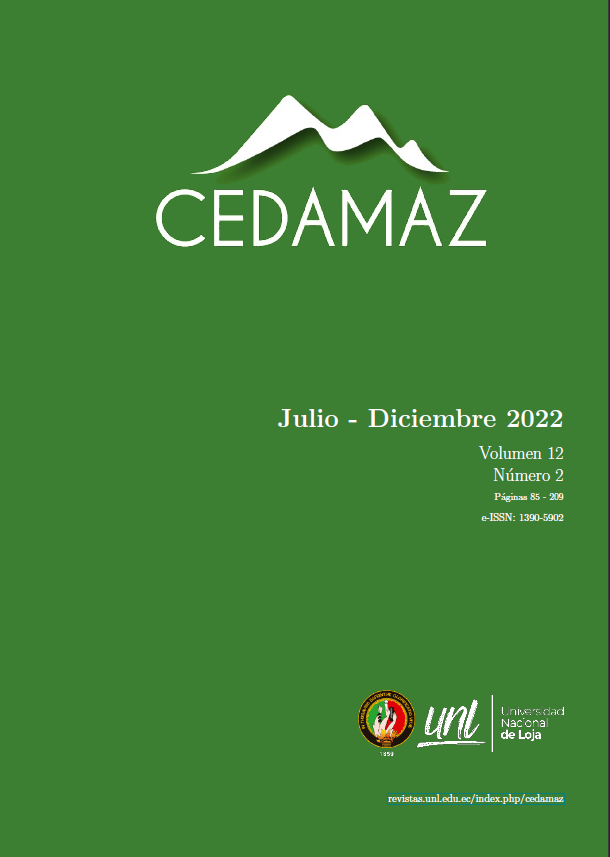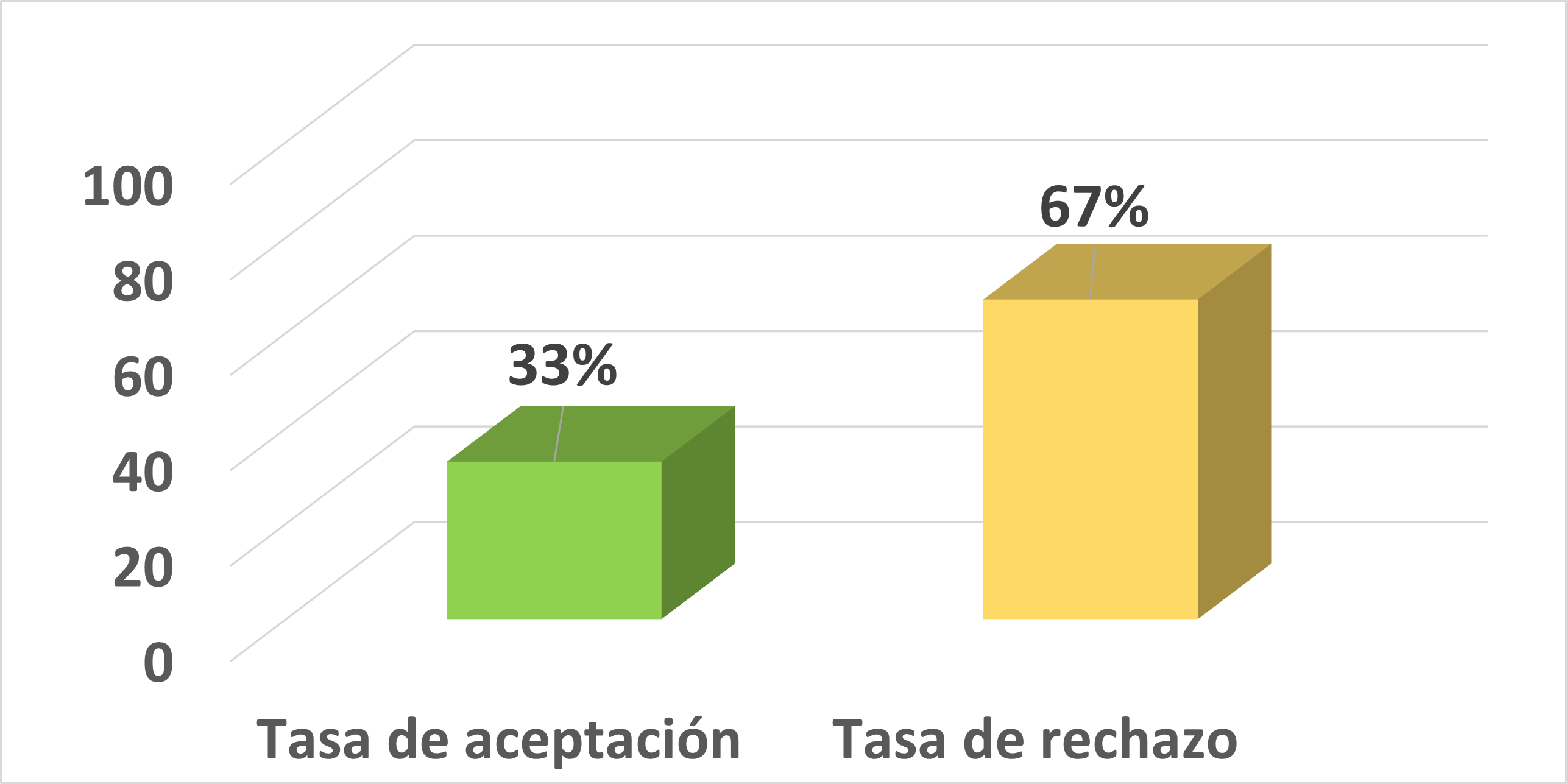Plastic recycling, a challenge to achieve a circular economy
DOI:
https://doi.org/10.54753/cedamaz.v12i2.1265Keywords:
Recycling, Plastics, PET, Circular economyAbstract
The elimination of plastic pollution is one of the bases for the emergence of a circular economy. The high demand for this type of material, per capita growth and a lack of awareness on consumers are leading the planet to an environmental disaster, to the point that microscopic amounts of this material are already present in food chains of the planet. Several solutions to the problem have been presented but it is unknown what measures to follow if we want to achieve environmental conservation and reduce the plastic crisis. All this, together with the lack of public policies and support from the population, as well as the excessive use of plastic in the different industrial sectors means that its production and transport represent one of the largest sources of CO2 emissions into the atmosphere. Faced with this reality, the recycling of plastics within a circular economy is a promising alternative that will entail the articulation of all: companies, recyclers, governments, NGOs and the population, in order to achieve a solid system and demonstrate that plastic waste has a value, and it is worth the development of new technologies for its recycling.References
Ahmed, R., Hamid, A. K., Krebsbach, A.S., Wang, D. (2022). Critical review of microplastics removal from the environment. Chemosphere, 1335557 (293). DOI: https://doi.org/10.1016/j.chemosphere.2022.133557
Atsuhiko I. y Shinsuke I. (2022). The fate of missing ocean plastics: Are they just a marine environmental problem?. Science of the Total Environment, 153935 (825). DOI: https://doi.org/10.1016/j.scitotenv.2022.153935
Briassoulis, D., Hiskakis, A. y Hiskakis, M. (2021). Organic recycling of post-consumer /industrial bio-based plastics through industrial aerobic composting and anaerobic digestion - Techno-economic sustainability criteria and indicators. Polymer Degradation and Stability, DOI: https://doi.org/10.1016/j.polymdegradstab.2021.109642
, (190).
Chidepatil, A., Bindra, P., Kulkarni, D., Qazi, M., Kshirsagar, M., & Sankaran, K. (2020). From Trash to Cash: How Blockchain and Multi-Sensor-Driven Artificial Intelligence Can Transform Circular Economy of Plastic Waste?. Administrative. Sciences. Volumen 10, 23. DOI: https://doi.org/10.3390/admsci10020023
Costa, M.E., Grandera, G., Ferreira da Silvaa, J. y Gonzalez, E. (2021). Innovation projects of packaging recycling to a circular economy. Sustainable Operations and Computers, (2), 115-121. DOI: https://doi.org/10.1016/j.susoc.2021.05.005
Crawford, C. B. y Quinn, B. (2017). The contemporary history of plastics. Microplastic Pollutants. Editorial ELSEVIER. pp. 19-37. DOI: https://doi.org/10.1016/B978-0-12-809406-8.00002-5
Demets, R., Kets, K. V., Huysveld, S., Dewulf, J., Meester, S. D. y Ragaerta, K. (2021). Addressing the complex challenge of understanding and quantifying substitutability for recycled plastics. Resources, Conservation & Recycling, 105826 (171), 1-13. DOI: https://doi.org/10.1016/j.resconrec.2021.105826
Ding, J., Sun, C., He, C., Zheng, L., Dai, D., Li, F. (2022). Atmospheric microplastics in the Northwestern Pacific Ocean: Distribution, source, and deposition. Science of The Total Environment. 154337 DOI: https://doi.org/10.1016/j.scitotenv.2022.154337
Ecodes. (2019a). Contaminación por plásticos. Uno de los mayores desafíos ambientales del Siglo XXI. pp. 8,9. Ecodes. (2019b). ¿Son Los Bioplásticos La Solución A La Contaminación?. Contaminación por plásticos. Uno de los mayores desafíos ambientales del siglo XXI. pp. 2631.
Ecodes. (2019c). Una estrategia europea para el plástico en una economía circular. Contaminación por plásticos. Uno de los mayores desafíos ambientales del siglo XXI. pp. 105-107.
Ecodes. (2019d). Grandes alianza que fomentan la economía circular de los plásticos. Contaminación por plásticos. Uno de los mayores desafíos ambientales del siglo XXI. pp. 108-110.
Ellis, L., Rorrer, N.R., Sullivan, K.P., Maike, M., McGeehan, J., Román-Leshkov, Y., Wierckx, N. & Beckham, G.T. (2021). Chemical and biological catalysis for plastics recycling and upcycling. Nature Catalysis volume 4, 539–556. DOI: https://doi.org/10.1038/s41929-021-00648-4
Gewert, B., Plassmann, M., Macleod, M. (2015) Pathways for degradation of plastics polymers floating in the marine envioronment. Royal Society of Chemestry. DOI: https://doi.org/10.1039/C5EM00207A
Geyer, R., Jambeck, J., Law, K. (2017) Production use, and fate of all plastics ever made. Science Advances. 3 (7) DOI: https://doi.org/10.1126/sciadv.1700782
Haward, M. (2018). Plastic pollution of the world’s seas and oceans as a contemporary challenge in ocean governance. DOI: https://doi.org/10.1038/s41467-018-03104-3
Nat Commun 9, (667). Hopewell, J., Dvorack, R. y Kosior E. (2009) Plastics recycling: challenges and opportunities. Philosophical Transactions Royal Society Biological Sciences. 364. DOI: https://doi.org/10.1098/rstb.2008.0311
Khalid, M. Y., Arif, Z. U., Ahmed, W. y Arshad, H. (2022). Recent trends in recycling and reusing techniques of different plastic polymers and their composite materials. Sustainable Materials and Technologies, e00382 (31). DOI: https://doi.org/10.1016/j.susmat.2021.e00382
Lau, W., Shiran, Y., Baile, R., Cook, E., Stuchtey, M., Stuchtey, M., Koskella, J., Velis, C., Godfrey, L., Boucher, J., Murphy, M., Thomson, R., Jankowska, E., Castilla, A., Pildith, T., Pilditch, T. (2020). Evaluating scenarios toward zero plastic pollution. Science. 6510, 369. DOI: https://doi.org/10.1126/science.aba9475
Law, K. L y Thompson, R. C. (2014) Microplastics in the seas. Science. 345, 144. Lett, L.A. (2014). Las amenazas globales, el reciclaje de residuos y el concepto de economía circular. Revista Argentina de Microbiología, 46 (1), 1-2. DOI: https://doi.org/10.1016/S0325-7541(14)70039-2
Mena M. (2021a) La producción de plástico en el mundo. Mena, M. (2021b) ¿Qué países generan más residuos de plástico de un solo uso?.
ONU. (2018) Organización de Naciones Unidas. Agenda 2030: 17 Objetivos de Desarrollo Sostenible. Our Word in data (2019). Mismanaged plastic waste.
Plastics Europe (2021). Enabling a sustainable future. Plastics-the facts. An analysis of European plastics production demand and waste data.
Rosenboom, J. G, Langer, R., Traverso, G. (2022). Bioplastics for a circular economy. Nature Reviews | Materials. Volumen 7, 117- 137 DOI: https://doi.org/10.1038/s41578-021-00407-8
Sankaran, K. (2019). Carbon Emission and Plastic Pollution: How Circular Economy, Blockchain, and Artificial Intelligence Support Energy Transition? Journal of Innovation Management. Volumen 7, 4, 7-13 DOI: https://doi.org/10.24840/2183-0606_007.004_0002
Samaniego, J.L. Salina, C.,Ruette, J.A., Sanguinetti, J.P. yAllen, M.L. (2021) Trazabilidad y contabilidad del plás tico mediante el sistema A.P.A. Comisión Económica para América Latina y el Caribe (CEPAL). Naciones Unidas.
Shamsuyeva, M. y Endres, H.J. (2021). Plastics in the context of the circular economy and sustainable plastics recycling: Comprehensive review on research development, standardization and market. Composites Part C: Open Access. 100168 (6), 1-16 DOI: https://doi.org/10.1016/j.jcomc.2021.100168
Wang, Ch., Lui, Y., Chen, Wei-Qiang., Zhu, B., Qu, S. (2021) Critical review of global plastics stock and flow data. Journal Industrial. Ecology, 1-18. Waste Atlas (2022). Recycling rate per country.
Zheng, J. y Suh, S. (2019) Strategies to reduce the global carbon footprint pf plastics. Nature climate change. 9 374-478. DOI: https://doi.org/10.1038/s41558-019-0459-z
Published
How to Cite
Issue
Section
License
Copyright (c) 2022 CEDAMAZ

This work is licensed under a Creative Commons Attribution-NonCommercial-NoDerivatives 4.0 International License.
Those authors who have publications with this journal, accept the following terms:
- After the scientific article is accepted for publication, the author agrees to transfer the rights of the first publication to the CEDAMAZ Journal, but the authors retain the copyright. The total or partial reproduction of the published texts is allowed as long as it is not for profit. When the total or partial reproduction of scientific articles accepted and published in the CEDAMAZ Journal is carried out, the complete source and the electronic address of the publication must be cited.
- Scientific articles accepted and published in the CEDAMAZ journal may be deposited by the authors in their entirety in any repository without commercial purposes.
- Authors should not distribute accepted scientific articles that have not yet been officially published by CEDAMAZ. Failure to comply with this rule will result in the rejection of the scientific article.
- The publication of your work will be simultaneously subject to the Attribution-NonCommercial-NoDerivatives 4.0 International (CC BY-NC-ND 4.0)









